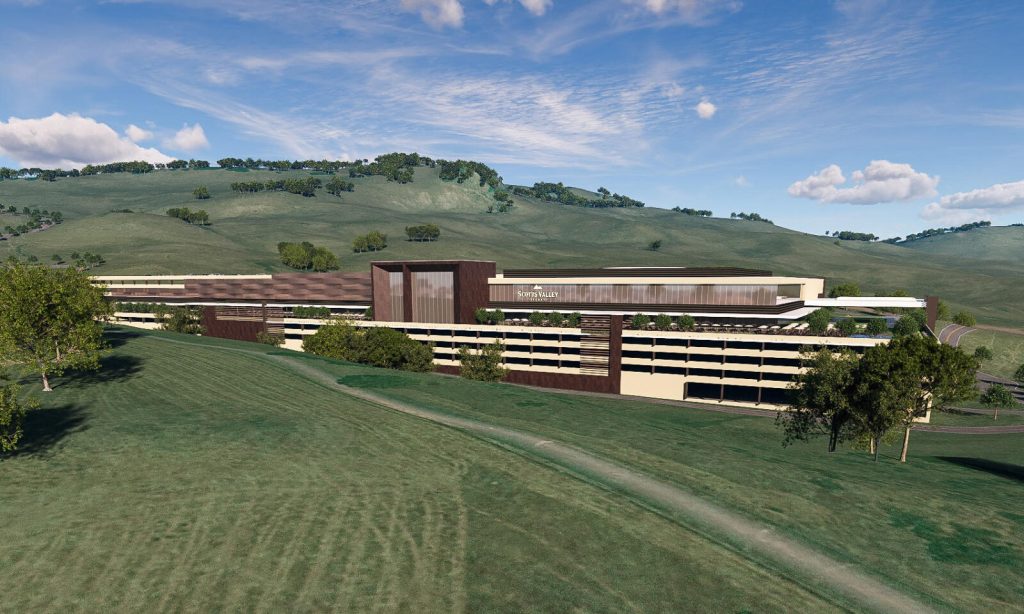Following the communication, which often included the white paper as an attachment, it ascended through the hierarchy to a deputy director in the Office of Intergovernmental Affairs, a White House liaison, and a deputy director in the Department of the Interior. The correspondence ultimately reached Bryan Mercier, director of the Bureau of Indian Affairs, and Philip Bristol, acting director of the Office of Indian Gaming, who are significantly involved in decisions regarding tribal gaming proposals.
Miller Strategies was not the only lobbying firm opposing the Scotts Valley casino proposal that week, as shown in Scotts Valley’s revised complaint.
On February 5, Ches McDowell, a managing partner at Checkmate Government Relations, sent the same white paper along with a letter titled “Scotts Valley Draft Reconsideration Letter for Trump DOI” to Burgum’s chief of staff. This staff member then circulated the documents to others within the Department of the Interior.
McDowell is reportedly close to Donald Trump Jr., described as “Washington’s hottest new lobbyist” in an April Wall Street Journal article.
Shortly thereafter, a third lobbyist joined the initiative. Aurene Martin, founder of Spirit Rock Consulting, on February 22 requested a meeting between the Yocha Dehe Tribal Council and Kennis Bellmard, deputy assistant secretary for Indian Affairs. She also included the white paper outlining Scotts Valley’s casino plans.
An office assistant at the Bureau of Indian Affairs responded, inquiring about new rules preventing lobbyists from attending Principal meetings and noted Martin as the Tribe’s attorney. Yocha Dehe has compensated Spirit Rock Consulting over $1.2 million since 2020, according to Open Secrets’ database.
Tribe’s Lobbying Expenditures
It is typical for tribes with gaming interests to engage lobbying firms; however, Yocha Dehe’s spending is noteworthy. Since 2020, their collective expenditures across three lobbying firms advocating for a reversal on the Scotts Valley casino proposal have reached $2.3 million, per Open Secrets.
In contrast, Scotts Valley has spent only $150,000 on lobbying in 2024-25, with no recorded payments from 2020 to 2023. Other tribal entities like the Federated Indians of Graton Rancheria and the Koi Nation have also engaged in lobbying, with expenditures of $900,000 and $150,000, respectively.
As discussions progressed into March, the urgency among Interior officials appeared to increase due to the lobbyists’ pressure. On March 19, Gunn directly emailed Bellmard, thanking him for a prior phone call and attaching the draft reconsideration letter. She proposed a strategy to “reconsider” the agency’s approval instead of “withdrawing” it.
Gunn also touched on potential litigation, mentioning a draft legal complaint titled “Yocha Dehe Wintun Nation vs. United States Department of the Interior.” She expressed a preference to avoid litigation against the Trump Administration while seeking a resolution that would allow the administration to take credit for reversing the decision. A day later, an attorney from the Interior Department facilitated the drafting of a response letter, which reflected the original lobbyists’ recommendations.
On March 27, the Interior Department informed Scotts Valley that it was pausing their gaming eligibility, a sudden change that has caused instability for the tribe, which has planned a casino and housing project on 160 acres in Vallejo, with significant investments already made.
The Yocha Dehe argue that Scotts Valley’s emphasis on lobbying is an attempt to deflect attention from critical legal issues, primarily its lack of cultural ties to Solano County. The Yocha Dehe reached out multiple times to the Biden administration to establish a transparent process but did not receive replies. The Department of the Interior has until August 15 to respond to Scotts Valley’s motion.



